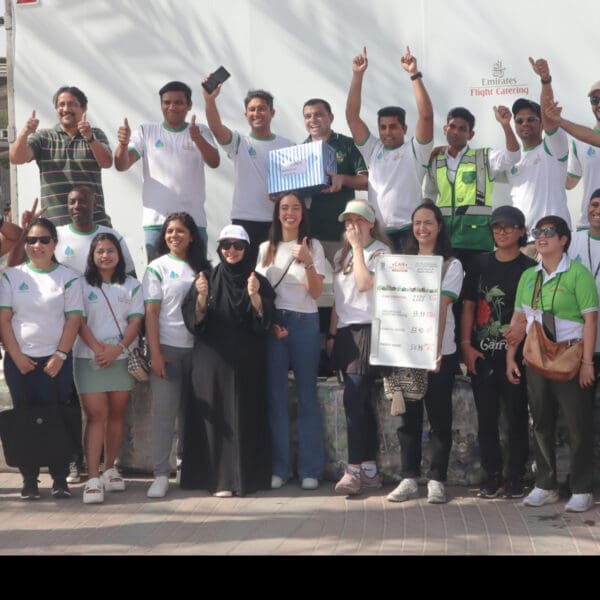 Leading global hotel brand, BWH Hotels (BWH) pledges its commitment to environmental and social responsibility through the launch of its new Earth, People and Community (EPC) initiative. Recognising the importance for the hospitality industry to take the lead on establishing sustainable programs that meet evolving guest expectations, the EPC program offers hotels practical, cost saving solutions to drive sustainable development.
Leading global hotel brand, BWH Hotels (BWH) pledges its commitment to environmental and social responsibility through the launch of its new Earth, People and Community (EPC) initiative. Recognising the importance for the hospitality industry to take the lead on establishing sustainable programs that meet evolving guest expectations, the EPC program offers hotels practical, cost saving solutions to drive sustainable development.
Through the EPC effort, BWH’s goal is to strengthen one community at a time by partnering with hoteliers and providing the necessary tools to enact meaningful change.
“Our hotel family is deeply committed to implementing environmentally friendly hotel practices, fostering a work culture where diversity is celebrated and partnering with charitable organisations to give back. Through our new EPC effort, our attention is focused on establishing ourselves as the place to stay and the place to work,” said Rod Munro, Managing Director of Operations, BWH Hotels Australasia.
The values that shape the EPC effort are the heart of BWH Hotels, representing hospitality leaders, hoteliers and industry colleagues. Focusing on the three pillars of Earth, People and Community, BWH Hotels is committed to operating responsibly in the near and long-term future, focusing on the company’s efforts to foster an inclusive culture that embraces diverse viewpoints and establishing strong connections within its local communities.
“The pillars of Earth, People and Community reflect our company’s ongoing commitment to sustainability and responsible tourism. The implementation of this new program and the work we’re doing with The University of Queensland establishes a practical approach for our hotels to develop sustainably for future for generations of travellers. Our hotels are setting an example for the industry and contributing to environmental solutions,” says Rod.
In cooperation with Professor Sara Dolnicar and her Low Harm Hedonism team at The University of Queensland (UQ), BWH Hotels is working with its properties to measure environmental performance automatically and continuously. Her team is developing and testing practical solutions that have the potential to change hotel guest behavior in ways that reduce negative environmental impacts. Any measures tested in hotels are pre-tested to ensure there’s no negative impact on guest satisfaction. Many practical measures have the pleasant side effect of saving hotels money.
“The work we’re doing is not going to change the industry overnight, but it can materially improve the environmental sustainability of the tourism sector, especially if many hotels adopt practical measures proven to be effective. Our collaboration with BWH Hotels will benefit the entire hospitality and accommodation sector as we will widely share all the measures that improve environmental performance while also reducing cost,” said Sara Dolnicar, Professor at The University of Queensland.
One of the current studies running at BWH Hotels across Australia investigates guest use of in-room refrigerators. Measurements remotely taken from the hotels about electricity consumption and guest use of minibars suggest that many guests do not use the fridge at all. The team are investigating the potential solution to the underutilisation of in-room refrigerators and its impact on guest satisfaction.
Another study soon to be carried out investigates the effectiveness of communication messages in an aim to reduce unnecessary use of the air conditioner to drive down electricity consumption. Guests will be displayed messages that suggest the choice of most customers, in a bid to influence their decision by the opinion of the majority. By implementing this simple communication strategy regarding air conditioning temperature controls, Sara’s team hopes to see a decline in electricity consumption.
A Sustainability Handbook is now available to BWH Hotels providing effective measures for uptake including:
- Reducing unnecessary daily room cleans by changing service defaults (up to 63% reduction in cleans)
- Reducing unnecessary daily room cleans by sharing the monetary savings with guests (up to 42% reduction in cleans)
- Reducing plate size at buffets by 3cm (which can reduce food waste by 20%)
- Introducing a stamp collection game for families at buffets (which increases the number of families leaving no food waste behind by 34%)
By implementing these practices, and working with UQ’s Low Harm Hedonism team, BWH Hotels signal their strong commitment to sustainability and to operating responsibly. Focusing on the three pillars of Earth, People and Community, BWH Hotels is committed to fostering an inclusive workplace that cares about its people and the environment.
To discover BWH’s EPC program and initiatives, visit joinbwhhotels.com.au/sustainability



















